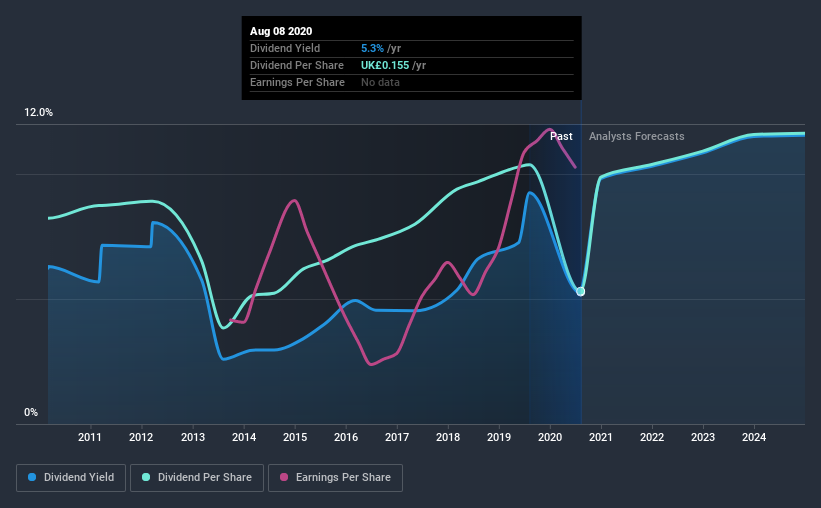Aviva plc (LON:AV.) Passed Our Checks, And It's About To Pay A UK£0.06 Dividend

Regular readers will know that we love our dividends at Simply Wall St, which is why it's exciting to see Aviva plc (LON:AV.) is about to trade ex-dividend in the next three days. This means that investors who purchase shares on or after the 13th of August will not receive the dividend, which will be paid on the 24th of September.
Aviva's upcoming dividend is UK£0.06 a share, following on from the last 12 months, when the company distributed a total of UK£0.15 per share to shareholders. Based on the last year's worth of payments, Aviva stock has a trailing yield of around 5.3% on the current share price of £2.936. Dividends are an important source of income to many shareholders, but the health of the business is crucial to maintaining those dividends. We need to see whether the dividend is covered by earnings and if it's growing.
See our latest analysis for Aviva
Dividends are typically paid out of company income, so if a company pays out more than it earned, its dividend is usually at a higher risk of being cut. Aviva is paying out just 11% of its profit after tax, which is comfortably low and leaves plenty of breathing room in the case of adverse events.
Generally speaking, the lower a company's payout ratios, the more resilient its dividend usually is.
Click here to see the company's payout ratio, plus analyst estimates of its future dividends.
Have Earnings And Dividends Been Growing?
Stocks in companies that generate sustainable earnings growth often make the best dividend prospects, as it is easier to lift the dividend when earnings are rising. If business enters a downturn and the dividend is cut, the company could see its value fall precipitously. With that in mind, we're encouraged by the steady growth at Aviva, with earnings per share up 2.8% on average over the last five years.
The main way most investors will assess a company's dividend prospects is by checking the historical rate of dividend growth. Aviva has seen its dividend decline 4.3% per annum on average over the past 10 years, which is not great to see. It's unusual to see earnings per share increasing at the same time as dividends per share have been in decline. We'd hope it's because the company is reinvesting heavily in its business, but it could also suggest business is lumpy.
Final Takeaway
Is Aviva an attractive dividend stock, or better left on the shelf? Aviva has seen its earnings per share grow slowly in recent years, and the company reinvests more than half of its profits in the business, which generally bodes well for its future prospects. Overall, Aviva looks like a promising dividend stock in this analysis, and we think it would be worth investigating further.
With that in mind, a critical part of thorough stock research is being aware of any risks that stock currently faces. For example, we've found 2 warning signs for Aviva that we recommend you consider before investing in the business.
A common investment mistake is buying the first interesting stock you see. Here you can find a list of promising dividend stocks with a greater than 2% yield and an upcoming dividend.
This article by Simply Wall St is general in nature. It does not constitute a recommendation to buy or sell any stock, and does not take account of your objectives, or your financial situation. We aim to bring you long-term focused analysis driven by fundamental data. Note that our analysis may not factor in the latest price-sensitive company announcements or qualitative material. Simply Wall St has no position in any stocks mentioned.
Have feedback on this article? Concerned about the content? Get in touch with us directly. Alternatively, email editorial-team@simplywallst.com.

 Yahoo Finance
Yahoo Finance 
